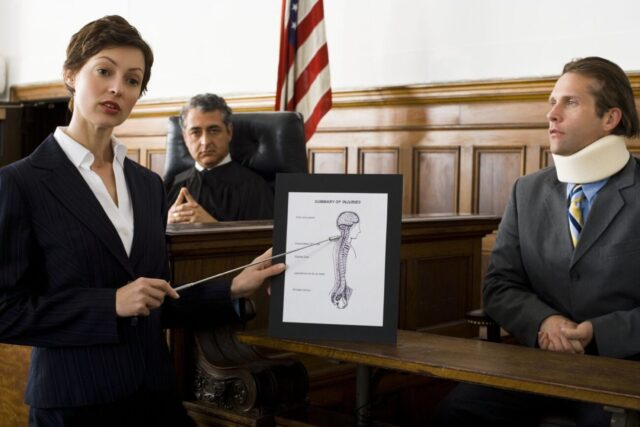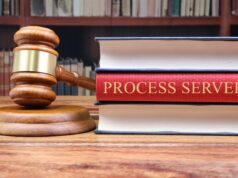
A personal injury lawyer is a legal practitioner who deals with lawsuits. There are many types of injury lawsuits. In Florida, many personal injury attorneys have contingency-based fees.
However, some lawyers also have fixed-priced legal fees. Understanding injury laws in Florida can help you be prepared for the process of injury litigation.
In this article, we will discuss the qualities to look for in an injury attorney, what to expect during the personal lawsuit process, and how personal injury lawyer charge for their services.
Understanding Personal Injury Law in Florida
A wide range of legal disputes that may arise due to any injuries sustained by an individual due to negligence or reckless behavior of another person is covered under personal injury law in Florida.
Negligence can be by an individual or by an entity. Some common examples of personal injury cases in Florida are traffic accidents, medical malpractice, slip, fall, etc.
Limitation on Personal Injury Cases

There is a limitation of four years on personal injury cases in Florida. If you do not file a suit within four years, you may lose your right to seek monetary damages for your injuries.
Determining the compensation, the personal injury courts in Florida analyze the degree of your fault in the accident and follow up a comparative negligence system to calculate the damages you deserve. For example, in a personal injury suit, your compensation might be reduced by 20% if you are found to be responsible for up to 20% of your injuries in a car accident.
Hire an Injury Lawyer
If you have suffered a personal injury in Florida, it is essential to hire an experienced attorney who can assist you with the complex legal process. These issues can be an investigation, negotiation with insurance companies, gathering evidence, contacting the police, and legal representation in the personal injury Court.
A general understanding of personal injury law in Florida is crucial if you want to file a lawsuit. You must know your rights and obligations if you wish to win worthwhile compensation or verdict. Get an idea about the litigation costs, attorney fees, and other expenses during an initial consultation with the lawyer. Many people are unaware that you can claim compensation of different kinds in your injury lawsuit. They can be;
- Monetary compensation
- Compensation for medical expenses
- Mental torture and agony
- Loss of wages
- Psychological, emotional, and mental distress
What to Look for in a Personal Injury Attorney

There are many personal injury lawyers in Florida. While hiring a personal injury lawyer, you should consider the following factors:
- Specialty ─ There are many categories of personal injury cases. When selecting an attorney, you should look at their specialization. Not all injury lawyers can handle all types of cases. Lawsuits are complex, and you will require the expertise of an experienced personal injury attorney.
- Communication and response ─ Always opt for an injury lawyer with a good reputation for their communication skills and responsiveness. You will need a lawyer who is responsible and knowledgeable about the laws to answer your prompt queries.
- A credible track record on the case is winning ─ Some attorneys in Florida work on a contingency basis. They only charge you a fee if they win a case. Others have an hourly-based fee structure or fixed-term fees. Discuss fees in advance to avoid getting billed for extra expenses in the future.
What to Expect During the Personal Injury Lawsuit Process
Personal injury lawsuits vary from each other, depending on the nature and complexity of the case. However, generally, the steps may involve the following:
- The first step is an investigation, evidence gathering, interviewing the witnesses, examination of police reports, consultation with experts, going through medical records, etc., after the injury occurs. This is done by your injury attorney.
- The next step is to prepare and file a lawsuit with the personal injury court. Once the suit is filed in the relevant court, it summons the defendant(s), and sufficient time is awarded to them to submit a response to the claim.
- If parties reach an out-of-court settlement through negotiation or mediation, and compensation is agreed upon, the lawsuit does not go to trial and discovery.
- However, if negotiations fail, the case goes to discovery and trial, and compensation is determined by the court based on the merits of the case.
How Personal Injury Attorneys Charge for Their Services

In Florida, personal injury attorneys charge for their services on a contingency fee basis. The concept of contingency-based fee exists in many states of the US, and it simply means that the lawyer gets a fee only when they hear your case. The fee is usually a percentage of the compensation the injury Court awards to the victim.
Expenses and Additional Costs
Apart from contingency fees, the attorney may also charge you additional fees such as;
- Fee for filing the suit
- Fees for getting the expert opinion
- Fees for obtaining medical records etc.
- TA/DA
It is essential to discuss fees, costs, and additional expenses with the lawyer during a consultation to get a perspective of how much you would have to pay. There may be some additional costs you have to pay during the course of the litigation of your personal lawsuit. Injury cases vary from case to case. Similarly, the costs may also vary depending on the complexity level.
Conclusion
There are many kinds of personal injury lawsuits. However, each type has a limitation by law. Personal injury lawsuits are time-barred. It means you will lose your right to bring a suit in court if you don’t file a claim within three years of sustaining the injury.
Consulting an attorney can be beneficial to get an insight into the merits of your case and the legal remedies you can pursue. A lawsuit is a long road, and you should also discuss fees, costs, and expenses to avoid surprises in the future.







